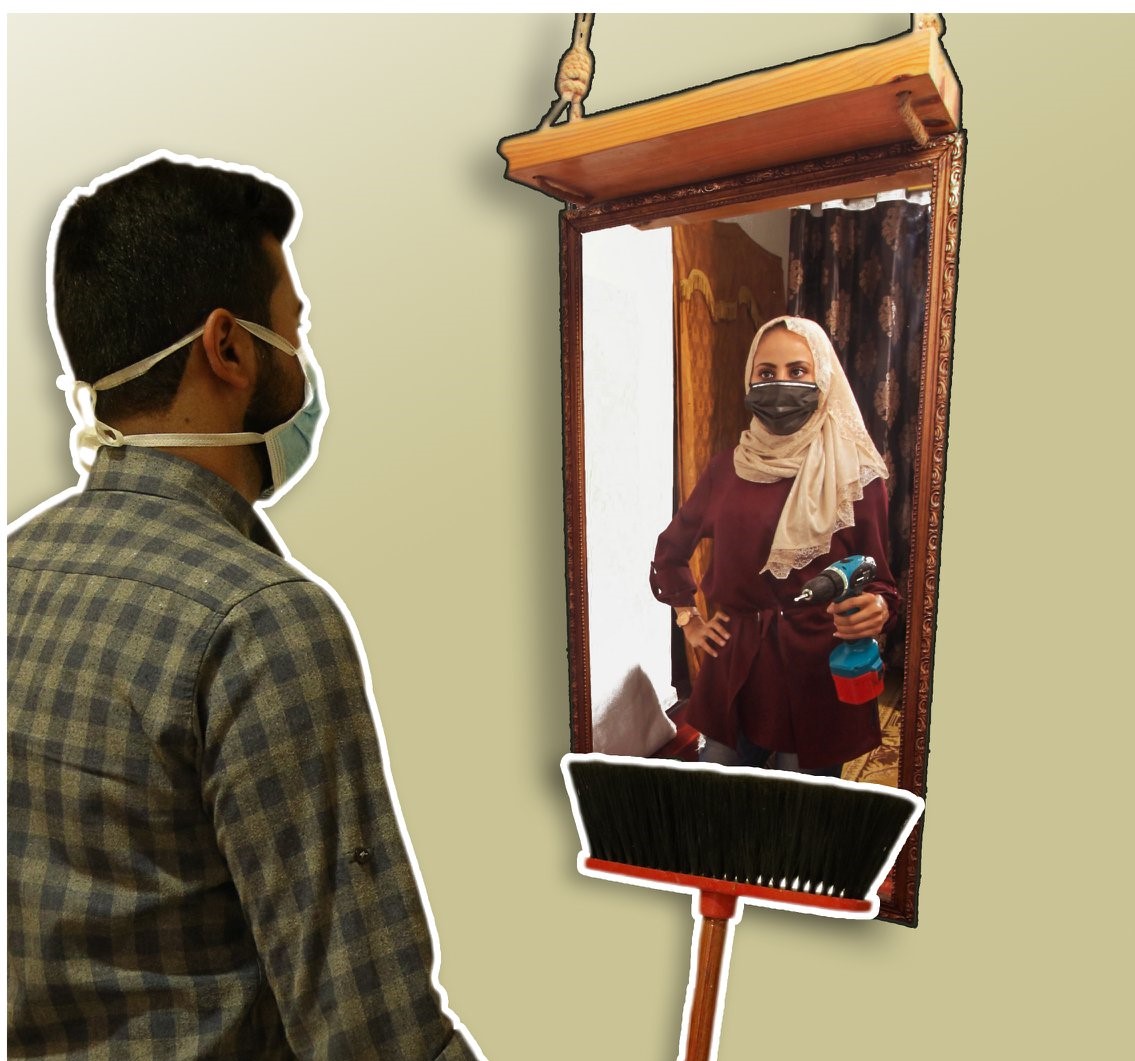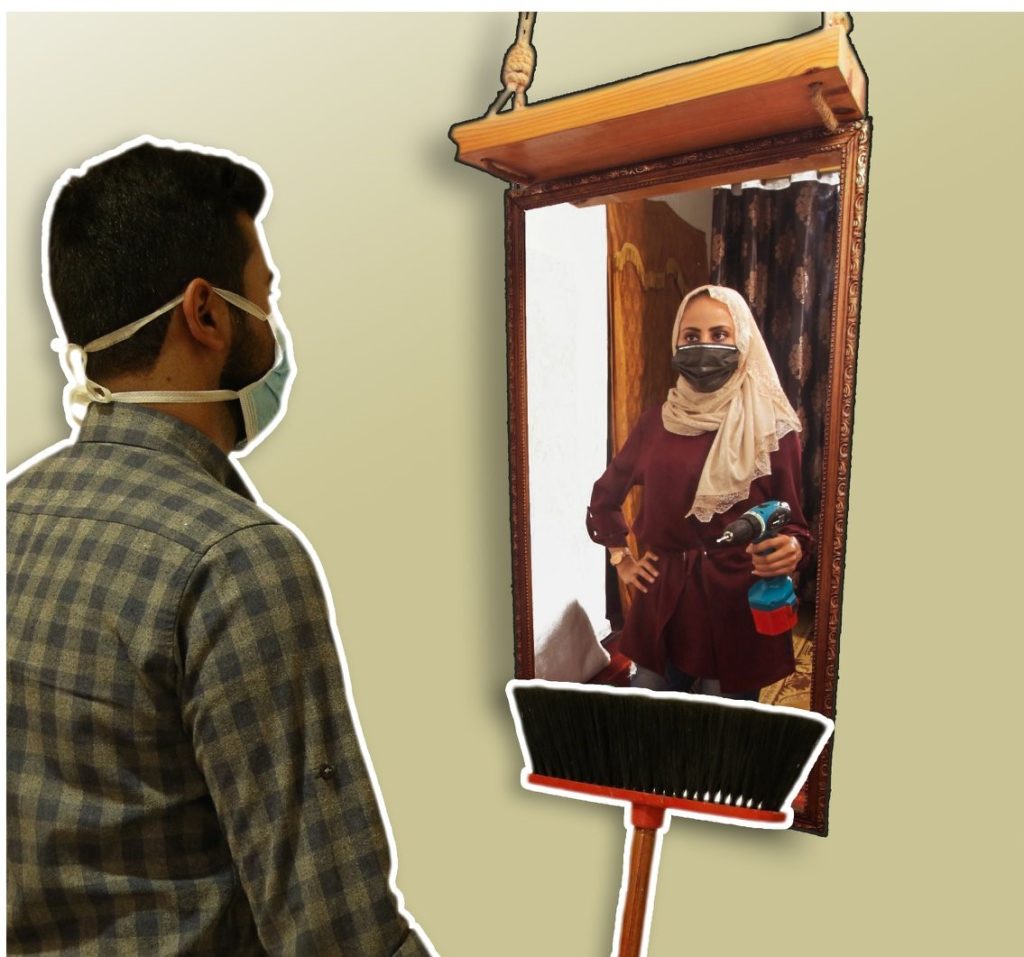id=”863″ id=”post-2531″ class=”wp-post-content-block ” itemscope itemtype=”http://schema.org/BlogPosting” itemprop=”blogPost”>
Debating gender stereotypes on Facebook
By Shara Jazzar
Five online debates were launched by Drabzeen on Facebook on youth perception of gender roles. The goal of the initiative is to increase the general’s public recognition and support for women in leadership positions by targeting the youth and triggering them to think positively about women’s political participation and leadership by enabling the youth to speak about controversial topics linked to popular beliefs related to the gendered roles of women in the Jordanian society, dividing participants into teams that presented arguments with or against these beliefs.
Major highlights from the debates
‘Men’s physical structure enhances their leadership roles’
In Jordan, and the Arab region as well, society often believes that “men’s physical structure enhances their leadership roles.” Participants who supported this saying relied on religion, culture, customs and traditions; which, in their opinion, have given men the leadership role “because women’s bodies are obstacles that hinder their abilities to be leaders,” as a female participant highlighted. For the latter, “women only succeed as mother leaders, because they are emotional.” Furthermore, when women hold a leadership position, “they only to do in order to try to imitate men, without success, and become dictators.” Another participant said that “despite the fact that women are equal to men in the eyes of the Jordanian constitution, they are still unable to reach leadership positions.” To him, this indicates that they are not born to be leaders and that most elected women have to thank the quota system for that, not their qualifications. As for the opposing team, it used many examples from around the world to prove that women should not be put in molds because of their bodies, as African women for instance have a stronger physical structure than Middle Eastern men; and European women were the ones to rebuild their countries after the 2nd World War when most males were killed; not to mention that “women leaders in Germany and New Zealand have dealt way better than men with the COVID-19 crisis.”
‘Societal stereotypes of women’s role give men power over women’
The second discussion revolved around the belief that “societal stereotypes of women’s roles give men power over women.” Supporting this saying, a female participant highlighted that during what was known as the matriarchal area in history, “women had responsibilities similar to that to men today.” This indicates that the power of men over women is cultural, and that females most probably started to look down at themselves on account of the negative perception males had on them, which was further enforced by religious texts. In addition, there are so many laws that discriminate against women and which do not give them the chance to prove their capacities or to break societal stereotypes regarding them. As a result, women lack trust in themselves and believe that men have more abilities than them.
‘Economic renaissance is linked to providing opportunities for women without distinguishing opportunities by sex’
As for the third discussion, it focused on the belief that “economic renaissance is linked to providing opportunities for women without distinguishing opportunities by sex.” Supporting participants highlighted that females are part of the national labor force and play an important role in supporting the national economy. However, one of the participants believes that Jordanian men are requested to pay all of the household’s expenses. To him, this means that they have to be the ones working. Nonetheless, another young man had a different say; if women were given an equal opportunity to enter the job market, they will support the economy – especially because they reach higher levels of education than men, according to him. However, another contributor underscored the gender pay gap, which encourages women to leave the job market and thus reduces their economic participation. On the same note, in many rural areas in Jordan, women are not allowed to pursue their education. Therefore, they are not always empowered to be able to compete with men in the job market. The reason for that is the conservative culture that believes that the major life goal of girls and women is to find a husband who would spend on them and of whom they would take care.
‘Women’s entry into the labor market reduces men’s work opportunities’
On the same note, “women’s entry into the labor market reduces men’s work opportunities” was also discussed. For some, this saying is accurate because of the gender pay gap in particular. This means that if women’s employment costs less, then they would have more chances to be hired than men because they would cost the company less. However, this negatively impacts both men and women because equality and sustainable development require that both are paid equally for the same job, and that employment be based on capacity not gender. Nonetheless, there are people who believe that men should have priority in terms of employment “because they have more responsibilities and are the ones paying bills and sustaining the family.”
‘COVID-19 pandemic contributed to breaking the stereotype regarding the role of men at home’
Finally, many Jordanians believe that the COVID-19 pandemic “contributed to breaking the stereotype regarding the role of men at home.” For supporters of this saying, that would be linked to the fact that men actually “discovered the amount of time and energy taking care of the house and children requires”. Furthermore, being stuck at home forced them to take part in whatever activity they could, and made them closer to their children. In addition, during the lockdown, responsibilities at home increased and one person – the mother – was unable to deal alone with all of it. These tasks included increased cooking, making the kids study and so on, in the absence of all sorts of support and while working at the same time.
Reflection on the debates
It is through listening to the different opinions of youth in relation with the five above topics that we can understand our society better, and perhaps influence change.
Surprisingly, many of the female participants were supportive of widespread claims that believe that women are weaker creatures that should always be under the protection of some male. Such position is very revolting, it is exactly like supporting your own oppression, and a major challenge towards triggering change. But how did we get here in the first place?
At the core of our issue lays patriarchy, which is defined by US feminist Cynthia Enloe as “including both beliefs and values. Both can be appealing – and in fact are appealing – not only to most men, but to a lot of women. That appeal is one of the things that sustains them.” As for Cynthia Enloe, an American feminist writer, theorist and professor, patriarchy is defined as “the structural and ideological system that perpetuates the privileging of hegemonic masculinity(ies). Thus, it is a hegemonic system or power relations based on gender norms, which establish the expected roles of men and women. In this system, women and girls have historically, and overwhelmingly, been oppressed, exploited or otherwise disadvantaged.”
Roots of Gender Inequality in Jordan
What are the root causes of gender inequality, issued from patriarchy, in Jordan? A report published by Hivos partner the IRCKHF in 2019 on gender discrimination in Jordan highlighted that “the Personal Status Law is based on interpretation by religious jurists who were guided by the gender assumptions that reflected the social, political and normative values of their time. While these interpretations are treated as sacred Shari’a principles, they are in fact temporal and should be constinuously re-examined to reflect the realities of our time.” Furthermore, according to the same study, the mentioned law “maintains the traditional role of women in the domestic sphere as wives and caretakers.” Therefore, if a woman were to revolt against these ‘pre-established’ social norms, she would be perceived as challenging the will of God, especially because these norms have been present for so long and rooted themselves in the psyche of people and society. To make the situation worse, legislation in Jordan “place the financial responsibility on men, and see women as dependents.” As a consequence, it is men who control most resources, to the disadvantage of women who are also sometimes forced to give up their inheritance to the benefit of male members of the family. All this leads to women’s economic disempowerment and strengthens their dependence on men. This is simply a vicious circle that is hard to break. On top of all of this, Jordanian women have no place as decision-making positions in religious institutions, being Muslim or Christian. This paves the way for a stronger control of men over women, and enables them to implement laws and legislation that strengthens it.
Making change happen
The discrimination against women goes back a long way, namely to gender stereotyping, which is defined by the OHCHR as “a generalised view or preconception about attributes or characteristics, or the roles that are or ought to be possessed by, or performed by women and men. A gender stereotype is harmful when it limits women’s and men’s capacity to develop their personal abilities, pursue their professional careers and make choices about their lives.”
In order to break this circle, women should be empowered and encouraged to hold decision-making positions, in particular in religious institutions. Our society is highly dependent on religion, which is considered as the ultimate truth and God’s will – this makes it untouchable. Through enabling a feminist interpretation of religious texts, women will be able to change the perception society and men in particular have of them. This will lead to an understanding of the benefits everyone gains from them joining the job market. On the legislation level, women will suffer less injustice as just laws will mean that they won’t ever have to let go of their inheritance for the benefits of men; and their rights as equal citizens will be reclaimed and preserved on all levels. All these will lead to their economic empowerment and political participation and will benefit society as a whole.





